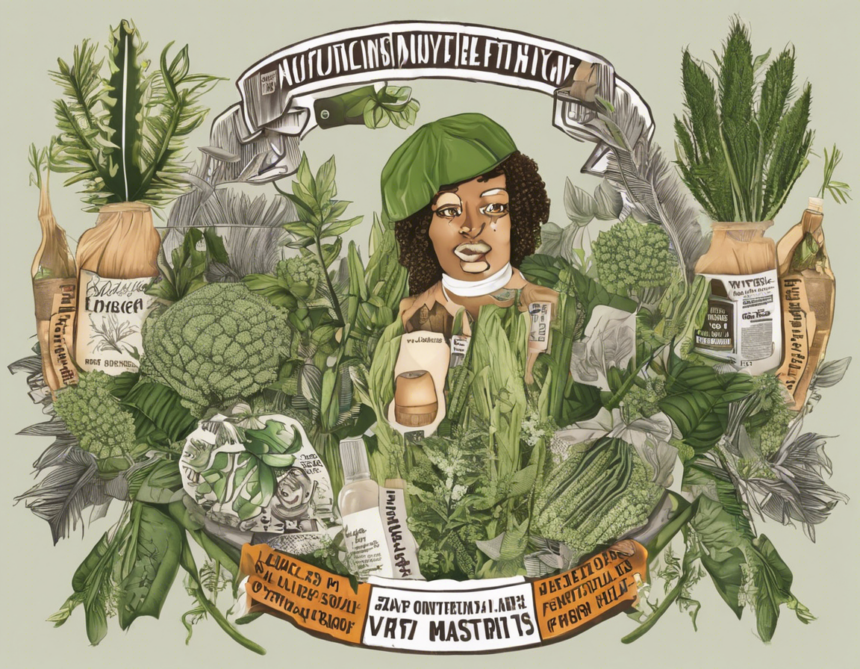As the world becomes increasingly aware of the impact of human activities on the environment, there has been a noticeable shift in consumer behavior towards more sustainable and eco-friendly options. One of the trends that are gaining momentum in this movement is the rise of naturals boycotts. These boycotts involve customers abstaining from purchasing products from companies that engage in practices deemed harmful to the environment, such as excessive plastic use, deforestation, or animal testing.
Understanding Naturals Boycotts
Naturals boycotts are a form of protest where consumers collectively choose to withdraw their support from a particular brand or company due to ethical or environmental concerns. This form of activism is driven by the belief that consumer choices have the power to influence corporate behavior and drive positive change.
Factors Driving Naturals Boycotts
Several factors contribute to the rising popularity of naturals boycotts:
-
Environmental Concerns: Increasing awareness of climate change, pollution, and biodiversity loss has motivated consumers to support businesses that prioritize sustainability and environmental stewardship.
-
Transparency: With the proliferation of information on the internet, consumers can easily access details about companies’ practices, making it easier for them to make informed decisions about the brands they support.
-
Social Media: Platforms like Instagram, Twitter, and Facebook have empowered consumers to amplify their voices and galvanize support for boycotts, making it easier to organize and spread awareness.
-
Corporate Accountability: As consumers demand more accountability from corporations, companies are under pressure to be more transparent and responsible in their operations.
Impact of Naturals Boycotts
Naturals boycotts can have far-reaching effects on companies, including:
-
Financial Losses: A successful boycott can result in a significant drop in sales, leading to financial losses for the company.
-
Reputational Damage: Companies that are targeted by boycotts may suffer reputational damage, which can impact their long-term brand image and customer loyalty.
-
Policy Changes: Boycotts can pressure companies to change their business practices, adopt more sustainable policies, and become more socially responsible.
-
Industry Awareness: Naturals boycotts can raise awareness within an industry and prompt other companies to reevaluate their practices and make positive changes.
Successful Naturals Boycotts Examples
Several naturals boycotts have successfully influenced corporate behavior and sparked meaningful change:
-
#StopAdani: A campaign in Australia targeting the Adani Group’s proposed coal mine, which gained widespread support and led to financial institutions withdrawing funding for the project.
-
#BoycottPalmOil: A movement urging consumers to avoid products containing palm oil due to its role in deforestation and habitat destruction, prompting companies to commit to sourcing sustainable palm oil.
-
#FurFree: An ongoing campaign to boycott fashion brands that use fur in their products, leading to many companies pledging to go fur-free.
Tips for Supporting Naturals Boycotts
If you are interested in participating in naturals boycotts or supporting sustainable consumer activism, consider the following tips:
-
Research: Take the time to research companies’ practices and policies to make informed decisions about which brands to support.
-
Spread Awareness: Use your voice on social media and in your community to raise awareness about environmental issues and encourage others to join in boycotts.
-
Support Alternatives: Look for eco-friendly and sustainable alternatives to products or brands that you are boycotting to ensure you can still meet your needs in a more environmentally conscious way.
Frequently Asked Questions (FAQs)
1. What is the difference between a naturals boycott and a traditional boycott?
– Answer: A naturals boycott focuses on environmental and ethical concerns, while a traditional boycott may target issues such as labor practices or political affiliations.
2. How can I verify if a company is engaging in sustainable practices?
– Answer: Look for certifications like Fair Trade, B Corp, or Organic, and check companies’ websites for information on their sustainability initiatives.
3. Are there any apps or websites that can help me identify sustainable brands?
– Answer: Yes, platforms like Good On You, Ethical Consumer, and the Buycott app can provide information on brands’ ethical and environmental performance.
4. Can individual consumers really make a difference through naturals boycotts?
– Answer: Yes, collective action by consumers has been shown to influence corporate behavior and drive positive change in industries.
5. How long should I participate in a naturals boycott to see results?
– Answer: The duration of a boycott can vary, but sustained pressure over time is often more effective in achieving meaningful change.
In conclusion, naturals boycotts are a powerful tool for consumers to advocate for environmental sustainability and social responsibility. By making conscious choices about the products we purchase and the companies we support, we can contribute to a more sustainable future for our planet.


Leave a Reply